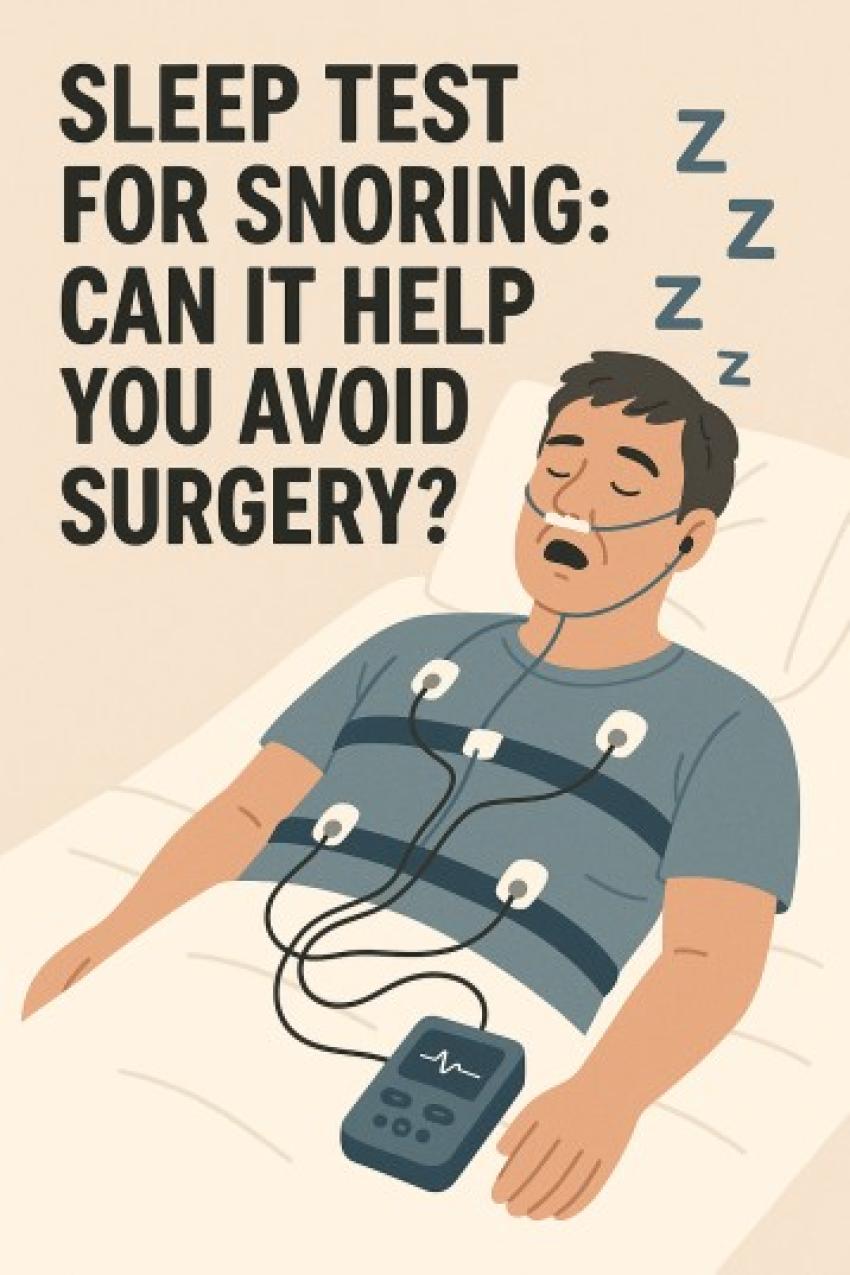
According to research published in the American Journal of Respiratory and Critical Care Medicine, nearly 45% of adults snore occasionally and about 25% snore regularly. For many, it’s just a disturbance at night. But for some, it’s a sign of something more serious—obstructive sleep apnea (OSA).
This is where a sleep test (polysomnography) comes in. Instead of jumping into surgery, a sleep study can help uncover the real cause behind your snoring. In many cases, it prevents people from undergoing unnecessary procedures.
What Is a Sleep Test for Snoring?
A sleep test is a diagnostic study where doctors monitor your sleep overnight, either at a sleep clinic or through a home sleep test kit. It tracks:
Breathing patterns
Oxygen levels
Heart rate
Brain activity (EEG)
Snoring frequency and intensity
This data helps specialists determine whether your snoring is related to obstructive sleep apnea, nasal blockage, obesity, or other factors.
Why Not Jump Straight to Surgery?
Many people with loud snoring rush toward surgical options like:
Uvulopalatopharyngoplasty (UPPP)
Nasal surgery
Palate stiffening procedures
But surgery is not always the right answer. Research shows that up to 50% of snoring surgeries fail because the root cause is not properly diagnosed.
A sleep test ensures doctors know whether your snoring is due to:
Collapsed airway (apnea)
Obesity-related restriction
Nasal congestion or sinus problems
Neurological sleep disorders
Only then can a correct, personalized treatment plan be created.
How a Sleep Test Can Help You Avoid Surgery
1. Identifies Hidden Sleep Apnea
Snoring is often the first symptom of sleep apnea. If apnea is confirmed, treatment may involve CPAP therapy instead of surgery.
2. Finds Treatable Non-Surgical Causes
Sometimes snoring is due to allergies, poor sleep posture, or nasal obstruction. These can be treated with:
Lifestyle changes
Weight management
Nasal sprays or allergy medication
Positional therapy
3. Guides the Right Treatment Path
Instead of a “one-size-fits-all” surgical fix, doctors use the sleep study report to tailor therapy: CPAP, oral appliances, or minimally invasive treatments.
Sleep Test Options in Delhi and Beyond
If you search “sleep test near me” or “sleep study Delhi”, you’ll find clinics like the Neurology and Sleep Centre (Dr. Manvir Bhatia) that specialize in advanced sleep diagnostics.
In-lab polysomnography → Best for detailed results
Home sleep test → Convenient but slightly less detailed
Both options can help you avoid unnecessary surgery.
Scientific Evidence Supporting Sleep Tests
The Journal of Clinical Sleep Medicine found that sleep studies reduce misdiagnosis of snoring-related conditions by 60%.
The American Academy of Sleep Medicine (AASM) strongly recommends sleep studies before surgical interventions.
Patients who undergo sleep testing first are three times more likely to get effective treatment without surgery.
When Should You Consider a Sleep Test?
If your snoring is loud and chronic
If your partner notices gasping or choking sounds at night
If you wake up tired despite 7–8 hours of sleep
If you have morning headaches or dry mouth
If you have high blood pressure, obesity, or diabetes
Summary
A sleep test for snoring is not just about recording your sleep—it’s about saving you from unnecessary surgery. By identifying the root cause, doctors can guide you to safer, more effective treatments like CPAP, lifestyle changes, or oral appliances.
👉 Before saying yes to surgery, say yes to a sleep test.




